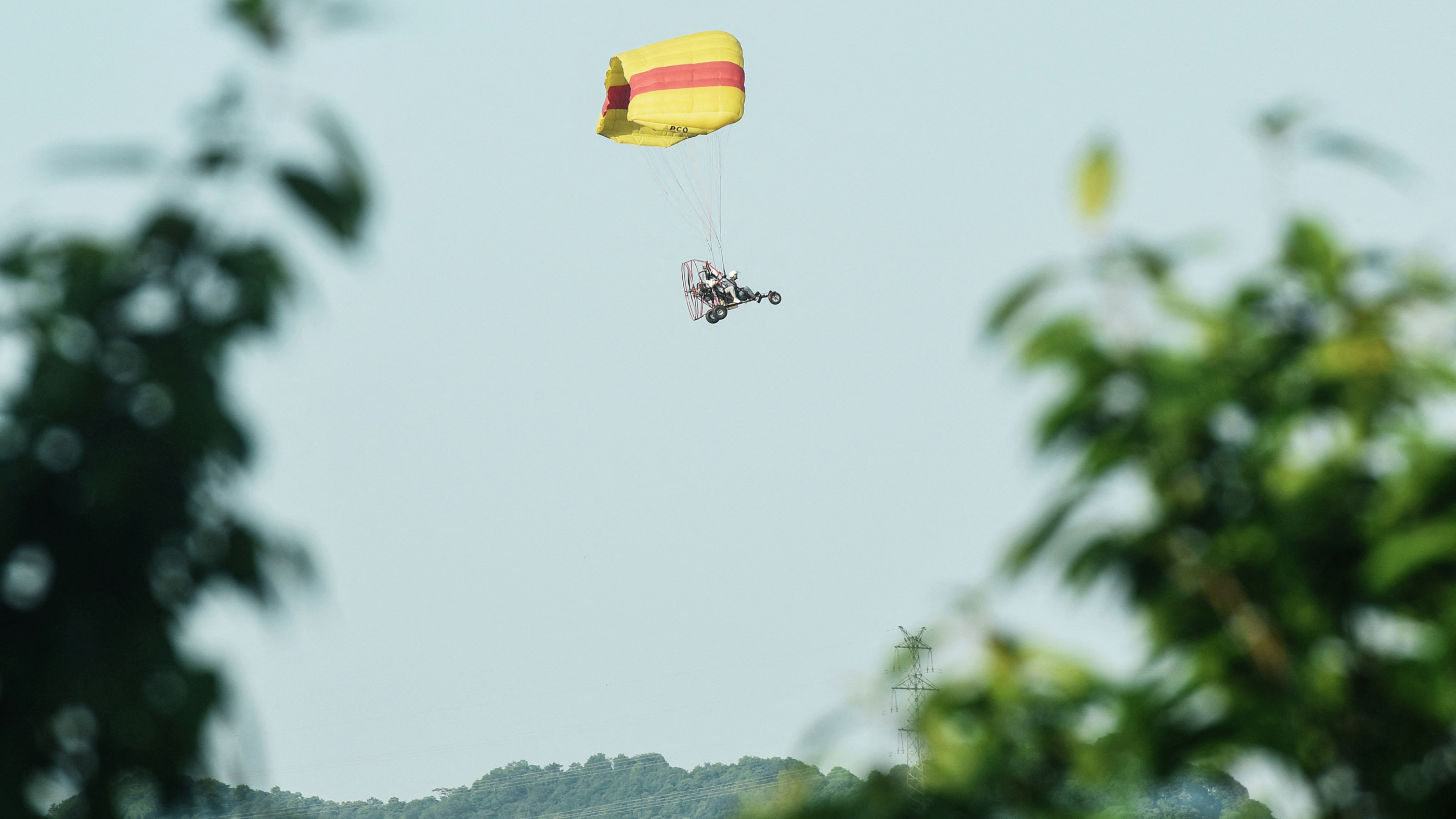After a Chinese zoo covered up a leopard escape, 100 chickens are searching for the big cat

Get the world’s most fascinating discoveries delivered straight to your inbox.
You are now subscribed
Your newsletter sign-up was successful
Want to add more newsletters?

Delivered Daily
Daily Newsletter
Sign up for the latest discoveries, groundbreaking research and fascinating breakthroughs that impact you and the wider world direct to your inbox.

Once a week
Life's Little Mysteries
Feed your curiosity with an exclusive mystery every week, solved with science and delivered direct to your inbox before it's seen anywhere else.

Once a week
How It Works
Sign up to our free science & technology newsletter for your weekly fix of fascinating articles, quick quizzes, amazing images, and more

Delivered daily
Space.com Newsletter
Breaking space news, the latest updates on rocket launches, skywatching events and more!

Once a month
Watch This Space
Sign up to our monthly entertainment newsletter to keep up with all our coverage of the latest sci-fi and space movies, tv shows, games and books.

Once a week
Night Sky This Week
Discover this week's must-see night sky events, moon phases, and stunning astrophotos. Sign up for our skywatching newsletter and explore the universe with us!
Join the club
Get full access to premium articles, exclusive features and a growing list of member rewards.
Chinese officials are hunting for an escaped leopard in the outskirts of Hangzhou, in eastern China, over three weeks after it escaped from a safari park. Hunters have used many methods to find the elusive big cat, including deploying a small army of drones and releasing around 100 live chickens as bait.
The leopard was one of three that escaped from Hangzhou Safari Park, around 12 miles (19 kilometers) from the city, while their enclosure was being cleaned on April 19. On April 21, officials captured the first leopard after shooting it with a tranquilizer dart, and on May 8, they caught the second one, which had injuries to its hind leg, according to The Washington Post.
Because the third leopard is still on the loose, local residents near the park have been warned to stay indoors for their own safety. Chinese officials issued a mass text message to local residents: "Leopard tracks have been discovered near mountain villages. Police are searching. Everyone please securely close doors and windows and do not go out," The Guardian reported.
Related: Here, kitty, kitty: 10 facts for cat lovers
Officials have deployed 1,700 personnel, including dog handlers, to find the final leopard and have released 990 drones, as well as a pilot in a powered parachute — a type of light aircraft that consists of a parafoil with a motor and wheels — to search from the skies, according to The Washington Post. Infrared motion sensors have also been set up near bodies of water.
The large-scale operation has been going for only a few days, because the safari park initially covered up the escape in an attempt to maintain visitor numbers over the May 1 Labor Day holiday, during which over 97,000 people visited the park, according to The Washington Post. Police launched an investigation after the public reported a large number of leopard sightings.
There was widespread public outrage toward the park after the news of the escaped leopards broke, and five individuals have been arrested in connection with the escape and subsequent cover-up, according to The Guardian.
Get the world’s most fascinating discoveries delivered straight to your inbox.
A happy outcome for the final leopard is becoming increasingly unlikely, as it never learned to hunt for its own food and is probably nearing starvation, according to The Guardian.
Originally published on Live Science.

Harry is a U.K.-based senior staff writer at Live Science. He studied marine biology at the University of Exeter before training to become a journalist. He covers a wide range of topics including space exploration, planetary science, space weather, climate change, animal behavior and paleontology. His recent work on the solar maximum won "best space submission" at the 2024 Aerospace Media Awards and was shortlisted in the "top scoop" category at the NCTJ Awards for Excellence in 2023. He also writes Live Science's weekly Earth from space series.
 Live Science Plus
Live Science Plus











